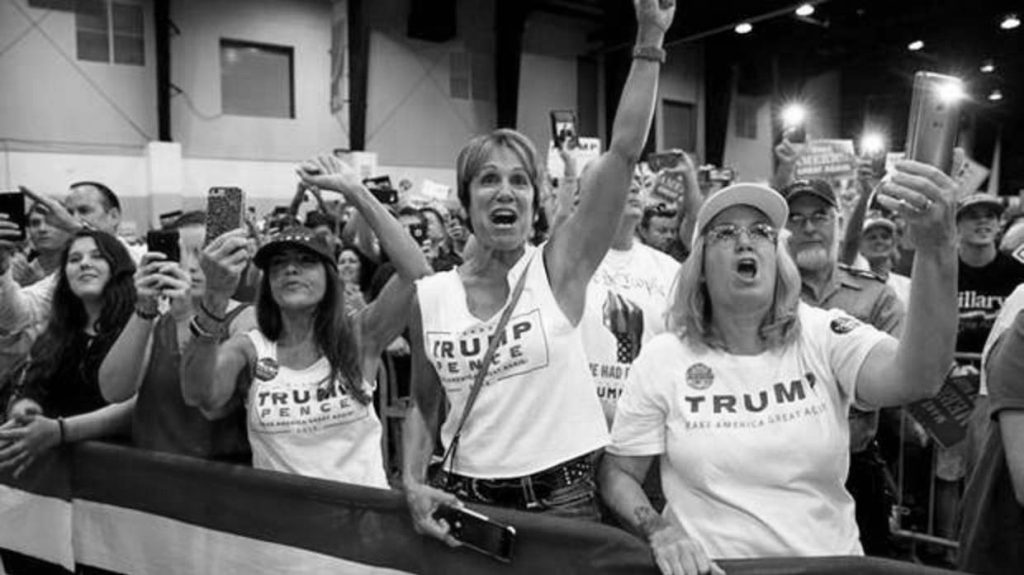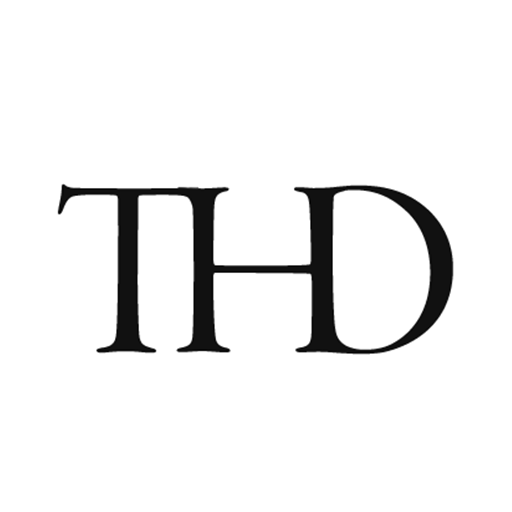Trump’s path to a dictatorship: predicted in October 2016
Jack Goldstone and Thomas Homer-Dixon
Globe and Mail
How Donald Trump would reshape America
Jack Goldstone is John T. Hazel Professor of Public Policy at George Mason University; Thomas Homer-Dixon holds the Centre for International Governance Innovation Chair of Global Systems at the Balsillie School of International Affairs and is a professor in the faculty of environment at the University of Waterloo.
As the great nuclear strategist Herman Kahn once said, to survive we must sometimes think the unthinkable. Never has this advice been more apt, because from the moment Donald Trump announced his run for president of the United States he has been transforming the unthinkable into the thinkable.
Now that Mr. Trump has declared he would use the powers of the state to prosecute and jail his opponent, Hillary Clinton, the thinkable includes a slide to dictatorship under a Trump presidency. But the political cognoscenti have rushed to reassure us that even in the unlikely event that Mr. Trump is elected, the U.S. government’s checks and balances are strong enough to prevent this outcome.
Drawing on decades of research, we disagree. The cognoscenti overlook two critical facts. First, U.S. government institutions are not as strong as many seem to believe, because today a significant fraction of the U.S. public thinks that these institutions don’t have a shred of legitimacy. More important, Mr. Trump would quickly reshape the context within which his presidency operates by generating a new political and social reality – an “emergency” in America and around the world – that justifies and even demands attacks on democratic institutions.
Mr. Trump traffics in anger and fear. For his ardent followers, he reveals a world of flagrant injustices, implacable enemies and dark, evil forces coming from every direction. He presents himself as the destroyer of the status quo, righter of wrongs, protector and saviour. His power as president would derive more from maintaining these roles in his followers’ eyes than from the institutional authority of the office itself. So he would work to sustain high levels of anger and fear.
Once in power, Mr. Trump would assail enemies abroad, such as the Islamic State, of course. But he would also pick fights with China, Iran and Mexico, and with allies he identifies as freeloaders. Domestically, he would escalate his attacks on immigrants, Muslims and particularly the liberal media. To appease his followers’ expectations, he would need to move quickly to construct some kind of barrier along the Mexican border, deport masses of “criminal” aliens and limit Muslim travel to the United States.
Elements within the federal bureaucracy, liberals in Congress and some civic groups would resist these policies at every step. Because of his tendency toward paranoia, Mr. Trump would see these disparate efforts as a co-ordinated campaign by the remnants of the defeated liberal elite to challenge his authority. He would portray his domestic enemies as a fifth column – as fundamentally disloyal and therefore mortal threats to the republic – and claim that U.S. security depends on overcoming the “weakness” of liberal opponents. And as he has done throughout his campaign, he would ask his more radical supporters to come to his aid, signalling that they need not respect the rule of law. The result: violent demonstrations and attacks directed at minority groups and liberal targets.
Mr. Trump would then be able to leverage this inflamed context – a context of mounting domestic and international instability, uncertainty and fear that he has intentionally created – to sharply expand surveillance and police presence; to investigate Muslim visitors and immigrants and their associates; to track and detain undocumented residents; and to use the powers of the federal government to harass anyone publicly critical of him. Such actions would not necessarily violate the Constitution but would still make America much more like a police state.
Eventually, domestic disorder could become severe and widespread enough to allow Mr. Trump to claim authority under either the National Emergencies Act or the Insurrection Act to issue executive orders to deploy troops, federalize the National Guard or suspend basic rights.
Congress or the states would undoubtedly challenge these orders in the courts, but they could remain in force as a constitutional crisis unfolds. And even if the orders were overturned, Mr. Trump would undoubtedly encourage his supporters to respond by taking matters into their own hands – against the “rigged” system. The resulting chaos would only further justify his authoritarian measures.
Fear is a potent solvent of political liberty, and fear would be Mr. Trump’s most powerful tool in his efforts to retain and build his power. The playbook has already been written by his favourite dictator: Vladimir Putin. The Russian President used fear – first of Muslim insurgency and terrorism originating in the Caucasus, and then later of America’s alleged perfidy in Ukraine – to crush his political opposition, shut down independent media and destroy nascent Russian democracy.
Mr. Trump’s repeated professions of admiration for Mr. Putin’s strong leadership foreshadow how he would lead as president himself.

Topics
Leadership and Politics
